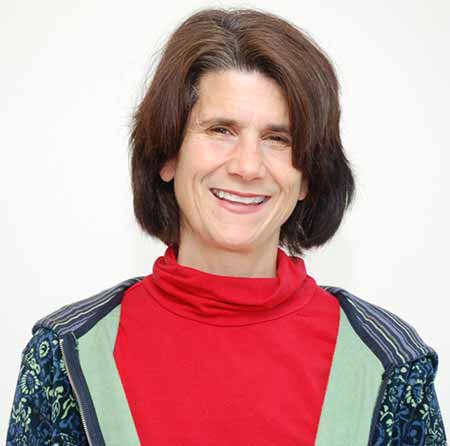FORCE11 Funds UC San Diego to Develop ’Scholarly Commons’ of the Future
Published Date
By:
- Tiffany Fox
Share This:
Article Content
UC San Diego has been awarded funding from FORCE11 (The Future of Research Communications and E-Scholarship) to oversee two workshops and supporting materials that explore the theme, “Are We Ready to Define the Scholarly Commons?” The workshops will be made possible through support from The Leona M. and Harry B. Helmsley Charitable Trust.

Maryann Martone
FORCE11 is a global coalition of more than 1,300 scholars, librarians, archivists, publishers, technologists and research funders. It's founded on the idea that scholarship includes not only written text but also software code, workflows, data and databases. Established in Dagstuhl, Germany in 2011 and currently based in San Diego, the membership-driven coalition is working to transition scholarship from paper and books to a digital networked technology.
At the workshops, which will be held at UC San Diego in early 2016, stakeholders from across the FORCE11 membership and the UC San Diego community will consider the “Scholarly Commons” of the future by re-imagining scholarly communication “after a clean start,” and then determining how close the scholarly community is to realizing that vision. The idea, says FORCE11 President Maryann Martone, is to delineate which technologies, tools and best practices are sufficient for the modern age and which require “chaotic innovation.” The workshops’ final outcome will be a charter that outlines the guiding principles for a Scholarly Commons, as well as a concrete set of recommendations to ensure that collective efforts align with a set of common goals and provide “a toolset for 21st century scholarship.”
“There is so much good work that has gone on and is going on around the globe to adapt our current practices of scholarly communication to a networked world,” says Martone, who is also a Professor Emeritus of Neuroscience at UC San Diego and an affiliate of the Qualcomm Institute. “Our goal with this support is to not only re-envision the future, but to pull together the principles, best practices and standards developed by these different efforts into a single place so that they can be implemented globally. It’s time to put together the best of what we know.”
Ultimately, the goal of FORCE11 is to fully modernize the system of communications for scholarship in general – and science in particular – and to accelerate the process of discovery and improve human lives. Notable past efforts by FORCE11 include the FORCE11 Manifesto, which provided a high-level treatise on the gaps in scholarly communication and recommendations for how to address them. The recent “Joint Declaration of Data Citation Principles,” a consensus of principles that guide any system for data citation, has been endorsed by more than 200 individuals and more than 90 organizations worldwide. In addition, FORCE11’s Resource Identification Initiative working group launched a project to overhaul the citation system for research resources (e.g., antibodies) that are uniquely identifiable and able to be processed by machines. Recently featured in a Nature news article, Research Resource Identifiers (RRIDs) have appeared in more than 350 papers in more than 50 journals to date.
“Although numerous digital tools have been created to more effectively communicate published research, they often don’t gain significant adoption across the diverse research community,” says Betsy Fader, Director of the Helmsley Charitable Trust’s Biomedical Research Infrastructure Program. “Understanding the critical need for community consensus, FORCE11 brings together top researchers, publishers, funders and policymakers to build a shared understanding of how to use technology to enhance research communication and dissemination.” Brooke Rosenzweig, Program Officer of the Trust’s Biomedical Research Infrastructure Program, added: “We are excited for FORCE11 to host these workshops and catalyze a conversation that aims to make real progress toward more efficient research."
Share This:
You May Also Like
Stay in the Know
Keep up with all the latest from UC San Diego. Subscribe to the newsletter today.



